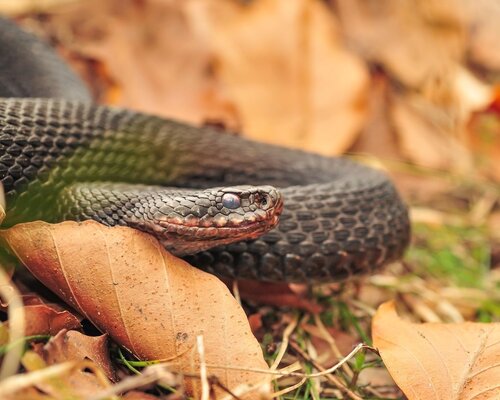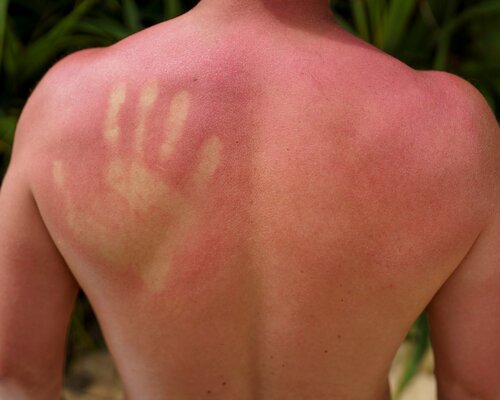What is a viper?
An adder is one of the few snakes in Belgium and the Netherlands. They like sheltered places with open plains for sunbathing and can be recognized by their zigzag pattern, short tail and triangular head.
Where is the adder found?
- Belgium: Mainly in remnants of large moorlands with plenty of shelter and clearings.
- Netherlands: On the high sandy soils in Drenthe, Friesland, Overijssel and Limburg.
The bite of a viper
A viper bite can release venom that penetrates deep into the tissues through the blood. The venom contains several substances that make the bite dangerous. Symptoms usually occur at and around the bite site and can range from redness and swelling to tissue damage and blood clotting. In very rare cases, a viper bite can be fatal (about one percent of bites).
Symptoms of a viper bite
Symptoms can occur immediately after the bite to several hours later:
- Red to dark purple discoloration of the skin
- Swelling around the biteSwelling around the bite
- Nausea
- Braken
- Abdominal pain
- Diarrhea
- Cardiac arrhythmias
- Low blood pressure
- Problems with blood clotting
- Respiratory problems
- Allergic reaction (itching, accelerated breathing, shock)
- Sensory disturbances in the affected limb
- Headache
- Drowsiness and decreased consciousness
- Stuipen
- Reduced urine production
- Infection of the bite wound with possible death of tissue
Most symptoms are rare and occur only in severe cases. Often only the skin is affected locally.
What to do and what not to do in case of a viper bite
What can I do myself in case of a viper bite?
- Stay calm: Panic accelerates blood flow and thus the spread of poison.
- Wound cleaning: First with water, then with disinfectant if available.
- Hold body part higher: Limit movement to slow spread of poison and reduce pain.
- Remove jewelry and tight clothing: Prevent pinching when swelling occurs.
- Take paracetamol: Relieves pain.
- Cortisone in allergy: Slow down the allergic reaction.
What definitely not to do in case of a viper bite?
- Don't suck out venom or apply compression banding: The venom is deep in the tissue and compression banding can cause tissue damage.
- Do not take anti-inflammatories: These affect blood clotting and can be dangerous in combination with the poison.
- Do not use ice on the swelling: Ice can be harmful.
Hospital treatment
An adder bite is always treated in a hospital. Here you will receive cortisone and infusion therapy to maintain circulation. In case of infection, antibiotics are given and pain medication is also started. An antiserum is given to neutralize the poison.
Hospitalization
- Adults: One-day observation.
- Children: Longer, due to their smaller body surface area and higher vulnerability.
Aftercare
After being discharged from the hospital, you should return for check-ups after one week. If new symptoms appear, you should return to the hospital immediately.





